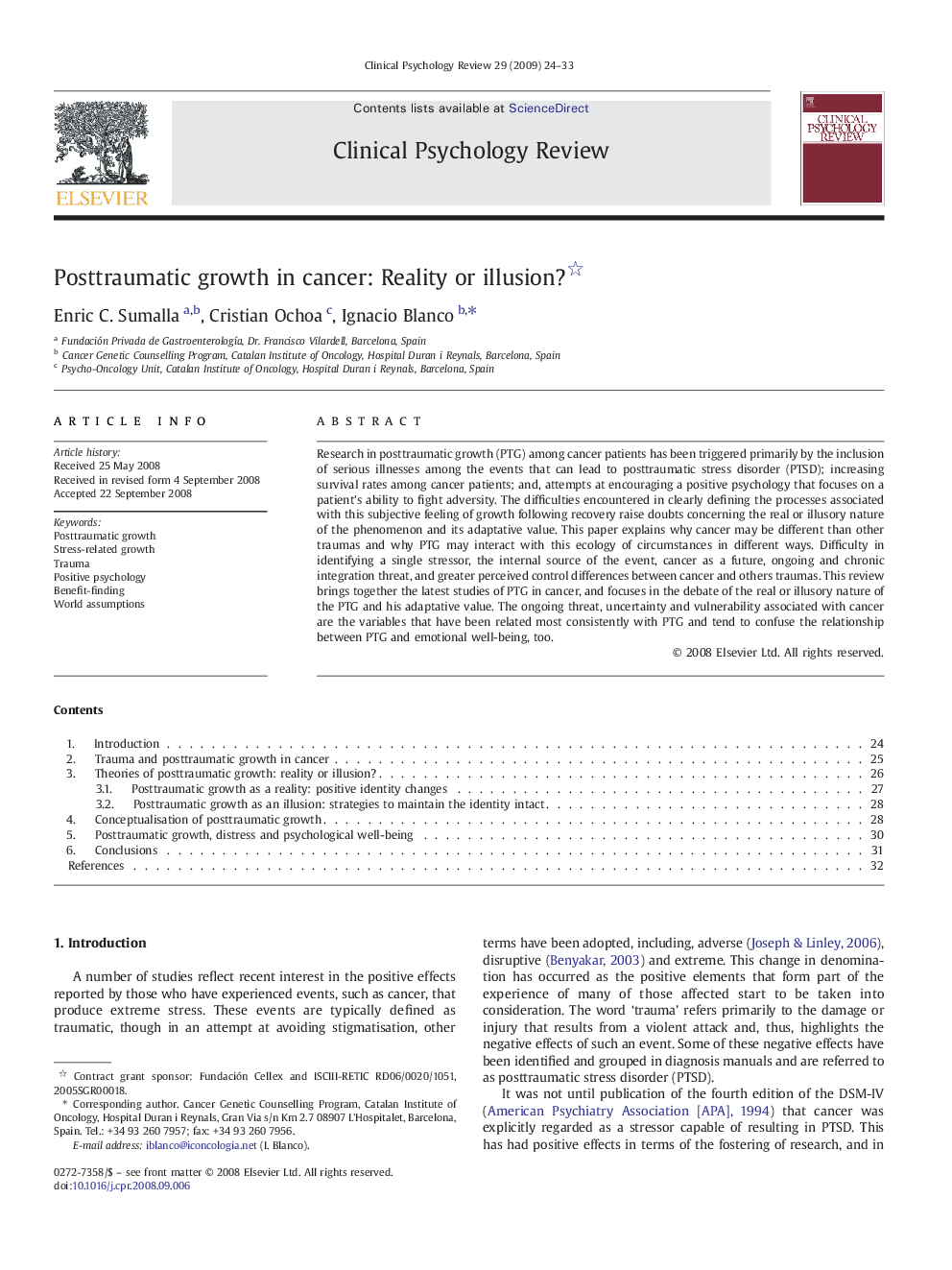| Article ID | Journal | Published Year | Pages | File Type |
|---|---|---|---|---|
| 903988 | Clinical Psychology Review | 2009 | 10 Pages |
Research in posttraumatic growth (PTG) among cancer patients has been triggered primarily by the inclusion of serious illnesses among the events that can lead to posttraumatic stress disorder (PTSD); increasing survival rates among cancer patients; and, attempts at encouraging a positive psychology that focuses on a patient's ability to fight adversity. The difficulties encountered in clearly defining the processes associated with this subjective feeling of growth following recovery raise doubts concerning the real or illusory nature of the phenomenon and its adaptative value. This paper explains why cancer may be different than other traumas and why PTG may interact with this ecology of circumstances in different ways. Difficulty in identifying a single stressor, the internal source of the event, cancer as a future, ongoing and chronic integration threat, and greater perceived control differences between cancer and others traumas. This review brings together the latest studies of PTG in cancer, and focuses in the debate of the real or illusory nature of the PTG and his adaptative value. The ongoing threat, uncertainty and vulnerability associated with cancer are the variables that have been related most consistently with PTG and tend to confuse the relationship between PTG and emotional well-being, too.
